The Future of AI in Education: Google and OpenAI Strategies Unveiled
GPT-4o, Gemini integration with Google for Education, LearnLM, an exclusive interview with Shantanu Sinha, and more!
🚨 Follow us on LinkedIn to be the first to know about new events and content! 🚨
The Future of AI in Education: Google and OpenAI Strategies Unveiled
By Ben Kornell
Last week was a big moment for AI in education, with back to back launches from both OpenAI and Google in the realm of AI product releases, announcements, and new education use cases. If you want the full rundown, check out these articles:
What stood out to me amidst the flurry of announcements and demos was the emergence of coherent and visible go-to-market strategies for AI offerings from both Google and OpenAI. The strategies they are gravitating towards are quite different, and foreshadow potential trajectories for AI in edtech over the next decade. Let’s get into it.
Google’s Strategy: AI Everywhere
Key Points
Google will win through seamless Gemini integration across all Google products
Enterprise approach in education to make Gemini the default at low/no additional cost
Functional use cases and model tuning demonstrate Google’s knowledge of educators
Google’s advantage in this AI race comes from their ability to integrate AI seamlessly across their products: Cloud, Chrome, Workspace, Android, and YouTube. Their range of channels sets them up to deliver AI offerings to billions of pre-existing users at home, school, work, and everywhere in between. Google’s marathon of AI-enabled features launched during their I/O conference demonstrated this range and breadth. So much so that the details got lost in the overall theme: AI everywhere.
In education specifically, the rollout of Google for Education enterprise features flexed Google’s decade or more head start in education. There was no single mind-blowing release that stole the show, instead they focused on practical school-based use cases rooted in the Google for Education Suite. As the largest edtech company in the world already, they were communicating an anti-AI-hype message of “we know what you need” and “stick with us.” Google’s strategy is an attempt to pour cement around their enterprise customers and fend off their real enterprise competitor: Microsoft. It’s notable that the only education feature they announced that is offered at a premium was Gemini in Google Meet: a clear shot at Microsoft Teams and an attempt to block out Zoom.
In the AI arms race, whether Google’s Gemini model is ever “the best” when it comes to LLMs is frankly irrelevant. Gemini just needs to stay on par with other models and win when it comes to integrated use. In that vein, Google also announced LearnLM, a series of education-focused models trained to support learning. Here, it’s the constraints that actually make the models most valuable: it’s tuned to “inspire learning” and “manage cognitive load” ... also known as no cheating!!
OpenAI’s Strategy: ChatGPT as the Front Door
Key Points
OpenAI taking a consumer-led freemium approach to education
API powers an app layer that delivers education-specific use cases
Betting on a large user base + app marketplace
In stark contrast to Google, OpenAI emphasized their agile, consumer-oriented roots with a slick release of the “omni-modal” (you heard that term here first!) GPT4o. Learning use cases were front and center in this announcement, with Sal Khan hosting a demo of the learning features with his son. It’s telling that parents and learners seem to be the audience for OpenAI demos, and not traditional education buyers like administrators, teachers, professors, etc. (especially when Google’s Gemini for Education features aren’t even available for students under 18). OpenAI’s demos were staged in a living room context, while Google’s education use cases were almost all based in the classroom.
OpenAI has held the lead in AI capability, so their bet with GPT4o is to cater to those who want “the best” model and the easiest consumer interface. They are deploying a classic freemium approach where the long term goal is to build a huge dedicated user base that can be monetized through subscription (more compute), ads (AI search), services (personalized models/data), and enterprise (consumer users->enterprise buyers). The GPT4o release supports OpenAI’s overall ecosystem play, where users get enamored with the OpenAI suite (ChatGPT, Whisper, DallE, Sora) and become locked in to a personalized data value loop.
OpenAI’s rollout of the new 4o capabilities included a nod to their developer ecosystem with reduced token prices and expanding API access to omni-modal features. In edtech, the reduced price is crucial, and acknowledges the competition from open source models. It also allows OpenAI to focus on being THE universal and high quality AI API, while their developer partners focus on expertise in educational use-cases. The explosion of AI education apps that we have today is fueled by these APIs, so OpenAI is betting that a marketplace can win over the vertically integrated enterprise approach of Google. I’m getting my popcorn!!
Free Offerings = Market Distortions
The other big takeaway from the past week is FREE. Free access to some level of AI will be an ongoing element of BigTech education offerings. This should worry entrepreneurs, investors, and even educators. We have seen this movie before with Learning Management Systems: the entire LMS market of the 2000s sagged under the weight of Google Classroom’s $0 price tag. The result was one-size-fits-all, relatively low quality LMS offerings all selling for $4-8/student. At this low customer lifetime value, all growth strategies skewed to high volume and limited features. Only recently have Canvas and a few others figured out how to capture more value with assessment data.
Which leads to where things are potentially headed with AI in education: to power OpenAI’s tutors of the future and/or the Gemini LearnLM models, both companies will need more assessment data. This could be the near-term gold mine (selling said assessment data), but it could also be the long-term threat to the entire AI-in-edtech industry.
Am I concerned? Yes. Do I think that big tech companies will figure out how to do assessment, content, or data insights better than edtech native companies? Absolutely not. But, the pattern we have often seen is that a free B- rated product often beats a paid A+ rated product in the education space. And even if buyers are willing to pay a premium for a “better” offering, how much more than free?
This edition of the Edtech Insiders Newsletter is sponsored by Tuck Advisors.
Tuck Advisors is a trusted name in education M&A. Founded by serial entrepreneurs with over 25 years of experience starting, investing in, and selling companies, we believe founders deserve M&A advisors who work as hard as they do. If you receive any UFO's™, unsolicited flattering offers, be sure to reach out to us at confidential@tuckadvisors.com. We can help you determine if it's a hoax or if it's real.
Join Edtech Insiders+
If you love Edtech Insiders and want to continue to support our work, consider becoming a paid subscriber! Remember that by joining Edtech Insiders+ you gain access to:
Early access to all Edtech Insiders events. No more sprinting to sign up for our monthly happy hours, edtech summits, and online conferences.
Access to our exclusive WhatsApp channel to connect with the Edtech Insiders community and discuss the latest trends and news in our space.
Access to exclusive member content, including interviews, panels, videos and articles.
All proceeds from subscriptions will help us invest in our podcast, newsletter, events, and community. Our goal is to make Edtech Insiders an enduring and sustainable community offering that connects the edtech ecosystem!
We would be so excited if you decide to join us as a member of Edtech Insiders+.
Edtech Insiders Live Events
New York Edtech Happy Hour
Our Happy Hour in NYC last night which was hosted collaboratively by FOHE, Edtech Insiders, Fine Tune, and NYEdTech Meetup was so much fun! It was great to see you all, enjoy a sunny evening outside together, and connect on all things edtech!
Edtech Night with the Oakland B's
Join Gold Talent, Workshop Ventures, and Edtech Insiders for a special evening celebrating the inaugural season of the Oakland B's, co-founded by edtech legend Paul Freedman! Let's come together to show our appreciation for Paul's dedication to both our industry and the Oakland community!
On June 12 at 5:35 PM, the Oakland B's will take on the Rocky Mountain Vibes at the historic Raimondi Park in Oakland. This event is an opportunity for the local edtech community to gather, network, and enjoy an exciting baseball game.
The Edtech Ticket Package, priced at $100, includes:
Tickets to the game
On-the-field access to meet and greet the team
Food and drinks
Your choice of an Oakland B's hat or shirt
Space is limited, so please RSVP soon to secure your spot if you’d like to join us! Bringing kids and family along is highly encouraged!
ASU+GSV 2024 Session Recaps
We’ve been working with our friends at the AI education startup Wisdolia to generate summaries of sessions from the recent ASU+GSV Summit. Here’s the second in the series, linked out so you can read it in full (this second recap is a bit longer than the first)! Enjoy!
Top Edtech Headlines
1. OpenAI Releases GPT-4o
As we have already covered in this newsletter, OpenAI has released GPT-4o. This new model accepts any combination of text, audio, image, and video as inputs, and generates any combination of text, audio, and image outputs. When it comes to flexible and customizable use in education, this opens up a world of possibilities.
2. Google Brings Gemini to Google Workspace for Education
Google has announced new Gemini integrations with Google for Education. Some examples use cases they shared include allowing educators to:
Go from a blank page to a lesson plan template, grant proposal or job description in Docs
Summarize a long email thread with key takeaways and next steps in Gmail
Create an agenda for an upcoming professional development session in Sheets
Bring a presentation to life or illustrate a topic in class by creating an original image in Slides
Since Google for Education already has a huge user base, this means wide-scale and immediate impact directly in education, with certainly more to come.
3. Google Releases LearnLM
In more Google news, Google has released a suite of generative AI models “fine-tuned” for learning called LearnLM. Theses models, built on top of Gemini, are designed to function conversationally and tutor students on a range of subjects, Google says.
4. Alongside Publishes “Pulling Back the Curtain on Youth Mental Health” Report
Alongside, a clinician-powered and AI-enabled mental health solution, recently published their annual report based on data from their users: middle and high school students.
Their analysis showed that for over a third (36%) of chats in their platform, students wanted to process feelings and feel heard, outranking other session purposes like building a skill or receiving advice about a problem. This is interesting in the context of what role technology can play in mental health for teens, as well as ongoing explorations about what type of role AI is best suited to fill in education settings.
5. Reach Capital Publishes Edtech Playbooks
Reach Capital has created a free and public repository of resources built to support founders working at the intersection of education and technology, based on their years of expertise supporting founders in the industry.
Edtech Community Shout Out
Ursula is an Emmy-Award-winning team building virtual companions for kids. These playful creatures foster curiosity, offer emotional support, and bond with individuals for life.
Kids come to Ursula to talk about Roblox, ask for homework help, or ask for advice about difficult situations they've faced. Some real quotes they’ve seen:
"Ursula, my IRL friends don't want to play with me anymore and I don't know what to do"
"You are my best friend, Ursula! I wish I could hug you right now"
"I'm writing a story for my book - can I use you as one of the main characters?"
Here’s a quick video of Ursula in action, check out all the amazing work they are up to!
Exclusive Interview: Shantanu Sinha
This week, we had an exclusive interview with Shantanu Sinha, the VP and General Manager of Google for Education! Together we covered the breaking Gemini integration with Google for Education products, and got to hear a ton about Shantanu’s long journey in education, edtech, and AI!
Here’s a deep dive on our interview with Shantanu, and we encourage you to give the full episode a listen for more!
Shantanu Sinha’s Professional Path
During our time together, Shantanu described his journey from his early interests in education to his significant roles at Khan Academy and Google for Education. He highlights his initial involvement in tutoring and volunteering, leading to co-founding Khan Academy with Sal Khan, and eventually joining Google to leverage its massive platform and advanced technologies for education.
“We had this vision that we could create a new type of organization. And I joined to help really build the Khan Academy as an organization with this audacious mission of providing a free world-class education for anyone anywhere, and we felt at the time that technology was really transforming what was possible.”
- Shantanu Sinha
Transition to Google and AI in Education
Shantanu discussed his transition to Google and his enthusiasm for the scale and technology Google offers, particularly in AI. He elaborated on Google’s products like Chromebooks, Classroom, and Workspace, emphasizing their integral role in modern education.
“I was always really interested in artificial intelligence... The idea that you can work in an organization that is at the cutting edge of technology and has a platform for scale. I thought, there's very few places where you could have that type of impact in the world.”
- Shantanu Sinha
The Future of AI with Gemini
Shantanu expressed his excitement and concern about the future of AI, especially with Gemini, Google's latest language model. He highlighted the advancements in AI’s capabilities, such as multimodal functions and large context windows, while also stressing the importance of responsible deployment in education.
"One of the biggest things with technology that's moving this fast is really understanding what's possible... And I think when you're dealing with something like education, which is fairly high stakes for students, for so many people, it's so important to get that right. So we like to say we want to be very bold and responsible in how we bring this technology to our user base."
- Shantanu Sinha
Gemini’s Integration into Google for Education
Shantanu announced the integration of Gemini into Google’s education products, detailing new features and partnerships aimed at enhancing teaching and learning experiences. He emphasized the focus on data protection and relevance in educational settings.
We are bringing Gemini to our education customers. So things like summarizing emails or helping a teacher write emails, creating lesson plans and docs, creating a slide presentation for your next class—really bringing the full power of generative AI into the broad capabilities within the workspace portfolio."
- Shantanu Sinha
Enhancing Creativity and Learning with AI
Shantanu talked about the unexpected applications of AI in education, particularly its potential to enhance creativity and make learning more engaging. He provides examples of how AI can transform the way students interact with educational content.
“One of the things that I'm most excited about is the unexpected applications of AI where you can enhance creativity in new ways... My own kids are writing new stories and creating videos and projects, interacting with this technology in a totally new way.”
- Shantanu Sinha
Curious to Learn More?
You can listen to our full interview with Shantanu Sinha, as well as interviews with many other edtech founders, investors, and thought leaders at The Edtech Insiders Podcast! Check it out, and as always, we’d love to hear what you think!
Funding, Mergers, and Acquisitions
Our latest reporting on funding, mergers, and acquisitions comes from Matt Tower’s publication EdTech Thoughts. Matt does an incredible job of covering the latest funding, news, industry updates, and more! If you love Edtech Insiders, be sure to subscribe to Matt’s newsletter as well.
Funding
Elevate K12 raises $25M from Trinity Capital / US, K12 Curriculum/Services / Trinity Capital
Anthropos raises $2.7M / US (Switzerland), Corporate Training / Founderful, Eden Ventures, Exor Ventures, Zanichelli Ventures
Teachino raises €2M / Austria, K12 Curriculum/Services / Klett Group
Futura raises €14M / Italy, Tutoring / Eurazeo, United Ventures, Axon Partners Group
Prep raises $7M / Vietnam, Test Prep (Language Learning) / Northstar Ventures, Cercano Asset Management, Touchstone Partners, East Ventures, Saison Capital
UBIQ Education raises $5M from Blackbaud / US, LMS / Blackbaud
Birdwingo raises €1.2M / US (Czech Republic), Financial Literacy / Bienville Capital
Acquisitions
Avathon Capital acquires Summit Professional Education / US, Continuing Education
ETS acquires Mastery Transcript Consortium / US, Assessment (Credentialing)
Wiser Educação acquires Conquer Busines School / Portugal, Degree Provider
95 Percent Group acquires Sortegories / US, Content Provider
Echo360 acquires Inkling / US, Content Platform
Rise Up acquires Domoscio / France, Corporate Training







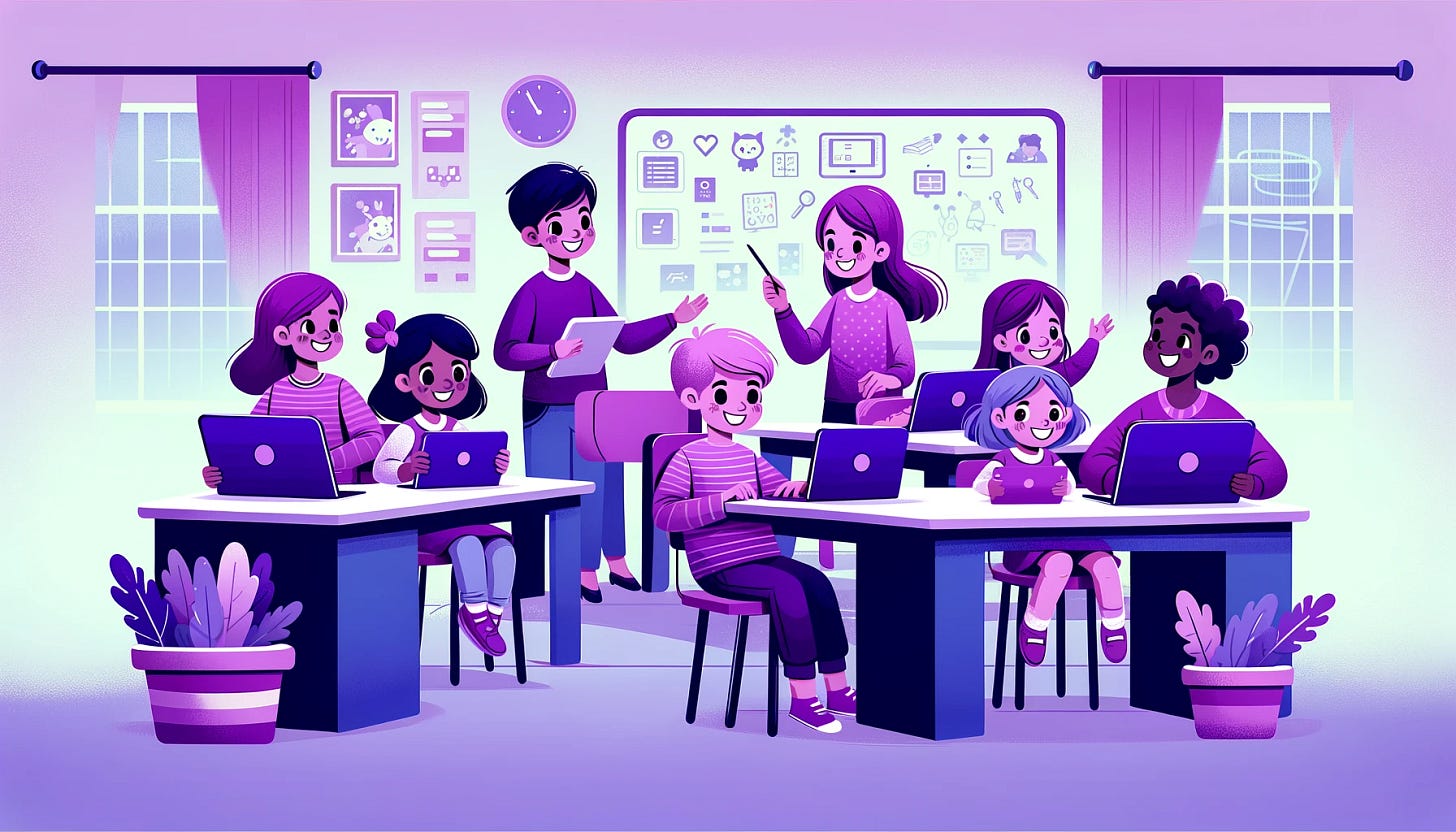
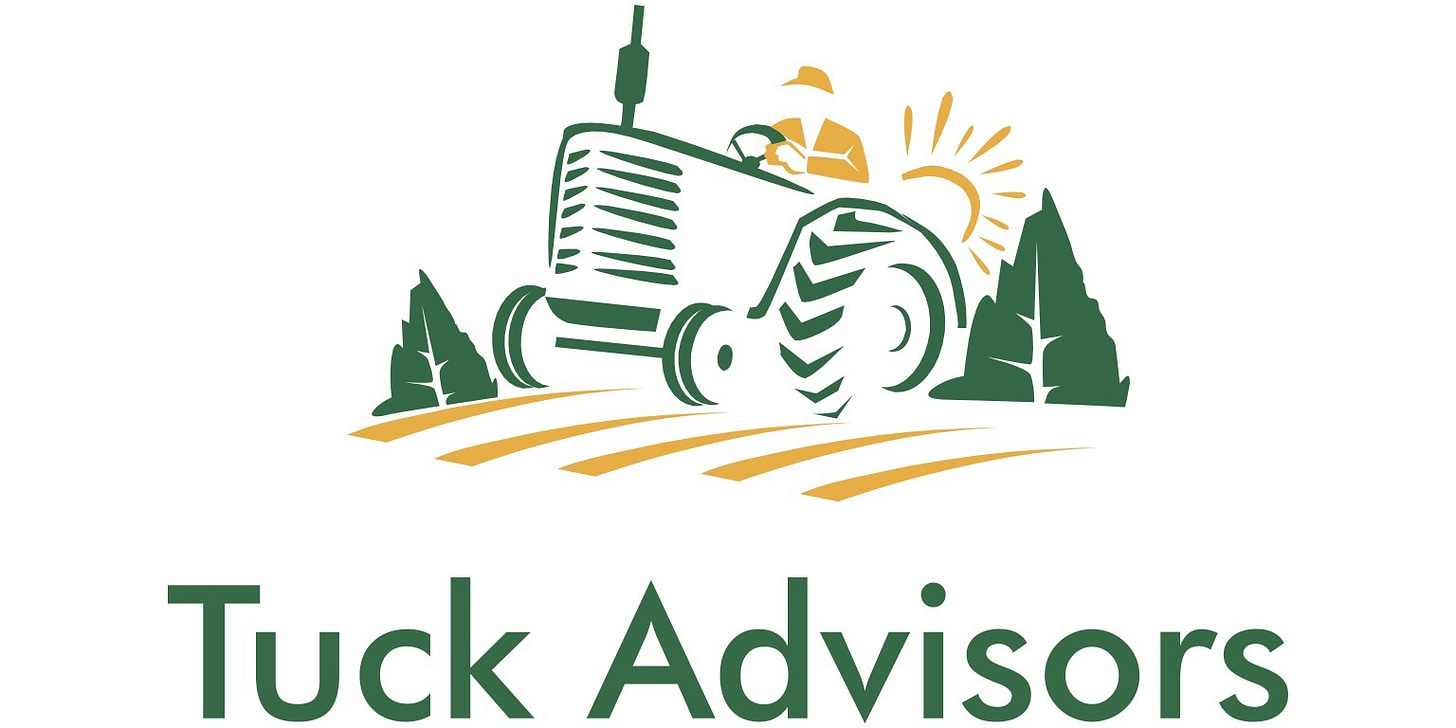

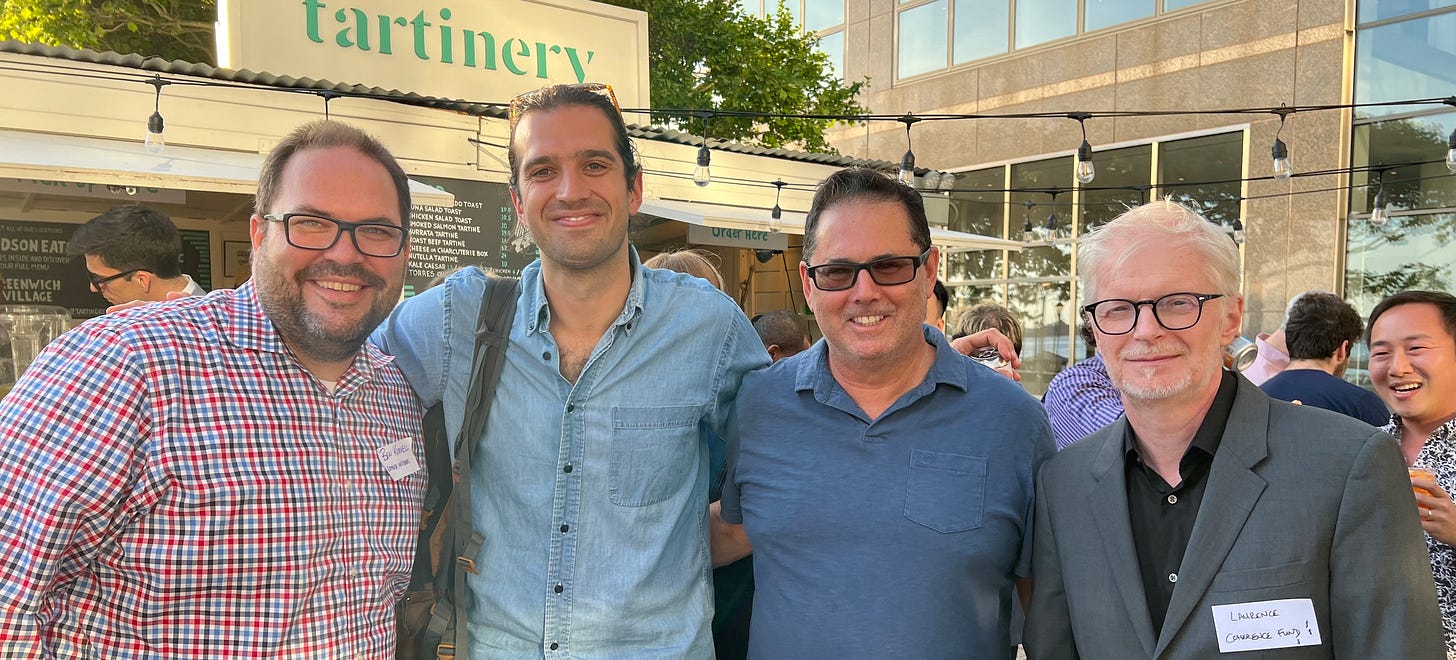


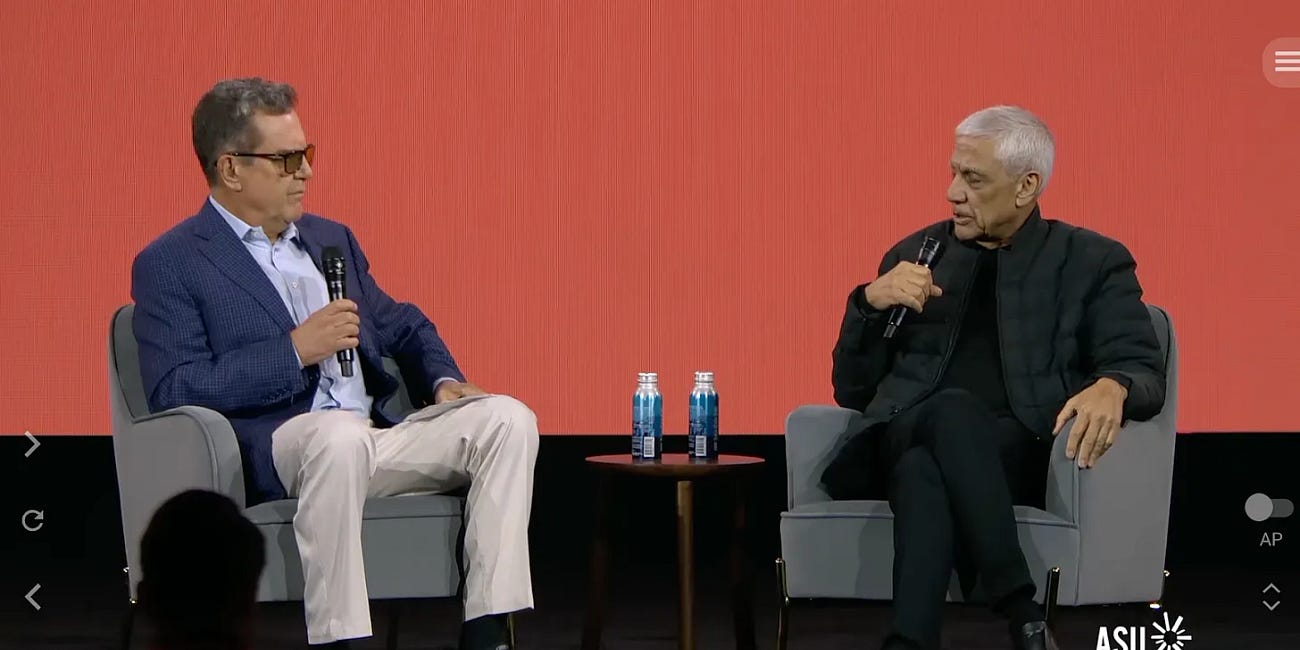

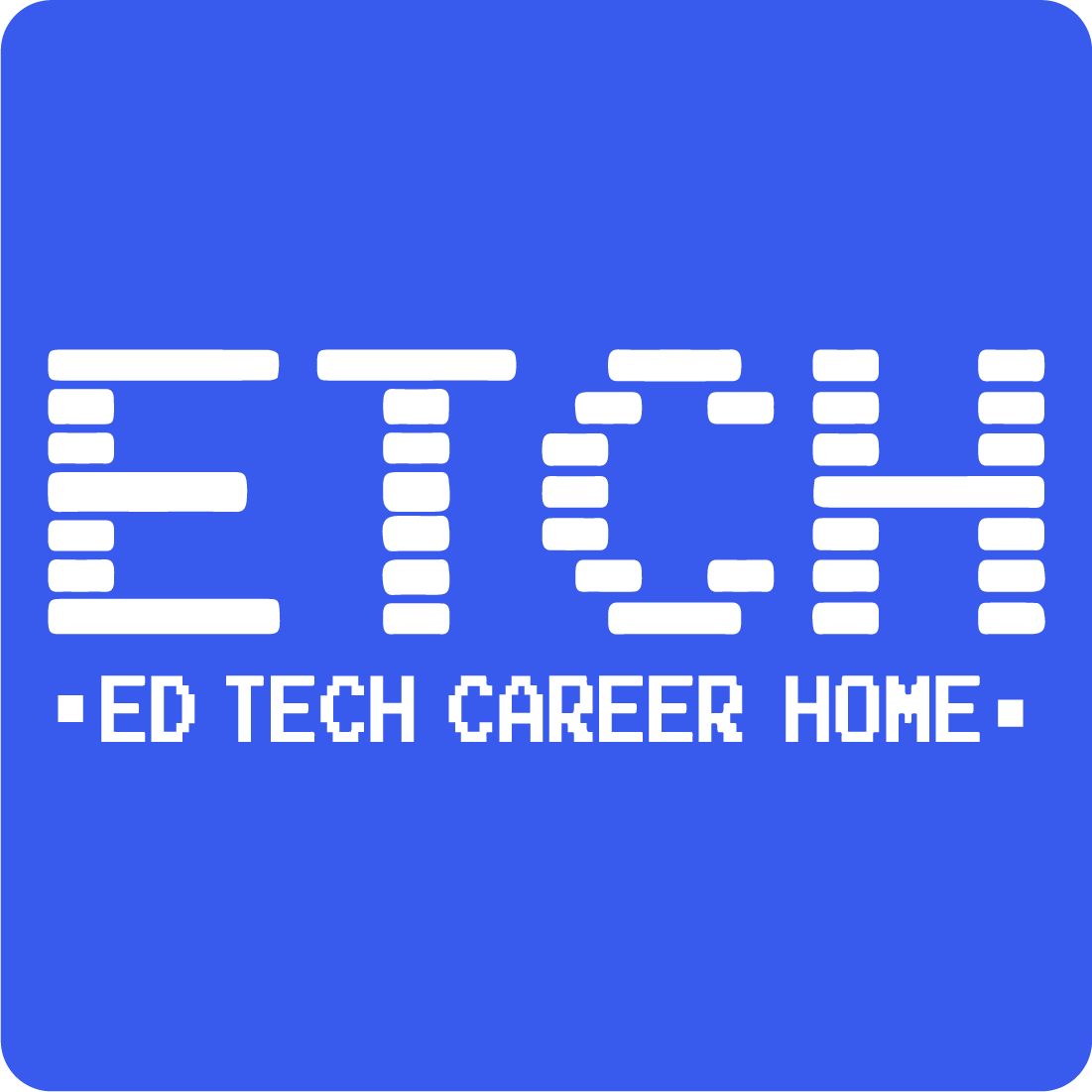
Google and OpenAI each have distinct AI strategies. Google focuses on seamless integration, while OpenAI adopts a consumer-oriented freemium model. This foreshadows the future trajectory of AI in edtech.
!!!!!!